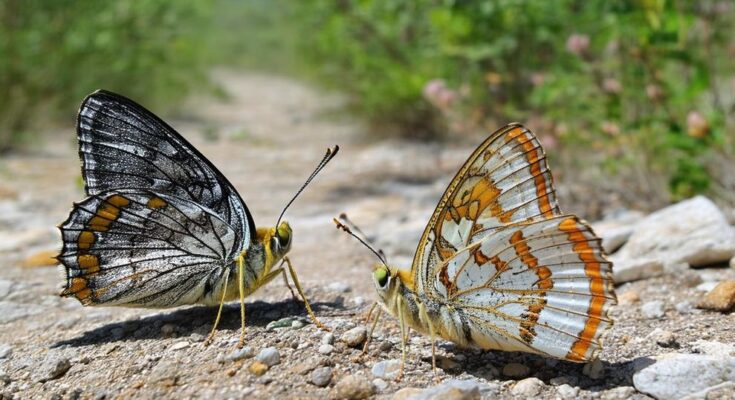Butterflies in Greece, home to about 237 species, are increasingly imperiled by climate change, which leads to food scarcity, shorter flowering periods, and potential decreases in size. Research by the Greek University of Ioannina, under the MEIOSIS project, investigates the effects of these changes on butterfly specimens over a century. Warmer temperatures and wildfires further challenge their survival by forcing migration and destroying food sources.
In a controlled environment at a zoo near Athens, vibrant butterflies feast on slices of orange, seemingly insulated from the climate-related challenges that threaten their counterparts in Greece and other regions worldwide. The nation is home to approximately 237 butterfly species, all of which are increasingly affected by rising temperatures that exacerbate food scarcity, shorten flowering periods, and potentially reduce the size of these delicate insects. Experts have documented a broader decline in butterfly populations on a global scale, with notable decreases observed in countries such as Mexico and Britain. Konstantinos Anagnostellis, an agronomist involved in research addressing this issue, notes, “Climate change is impacting butterflies … that rely on temperature to perform essential activities such as mating, reproduction, growth, and feeding.” Anagnostellis is part of the MEIOSIS project, spearheaded by the University of Ioannina in Greece, which seeks to analyze changes in body weight among over 50,000 butterfly specimens over the last century. This research aims to provide models illustrating the impact of climate change on the shrinking physical dimensions of these species. The rise in temperatures pushes butterflies to migrate to cooler areas where food availability is diminished. Additionally, the increasing incidence of wildfires in Greece further compounds these difficulties by destroying grasslands that serve as essential feeding habitats. “If these plants are burned, there is a risk of direct mortality for the larvae, and we may not have adult butterflies to reproduce, forcing them to migrate to other areas,” concluded Anagnostellis.
The article discusses the detrimental effects of climate change on butterfly populations in Greece, highlighting the challenges posed by rising temperatures, reduced food sources, and shorter flowering periods. It references a specific research initiative, MEIOSIS, which focuses on measuring the physical changes in butterfly specimens over an extended period to correlate these changes with environmental factors. The broader impact of climate change on global butterfly populations underscores the urgency of addressing these issues.
In conclusion, climate change poses significant threats to butterfly populations in Greece, as well as worldwide. The research efforts such as MEIOSIS illuminate the critical need for understanding the correlations between environmental changes and the physical characteristics of these species. Immediate actions are necessary to mitigate the adverse effects of habitat destruction and food scarcity that are exacerbated by climate change.
Original Source: kfgo.com




